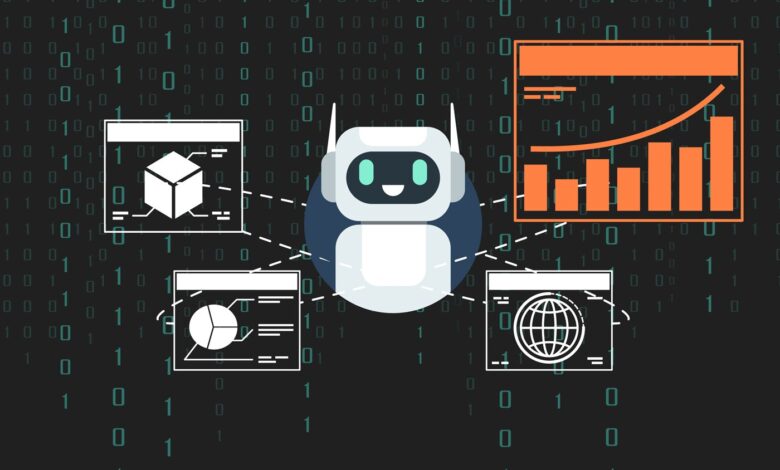Is AI ‘Copilot’ a Generic Term or a Brand Name?

[ad_1]
The term “copilot” for AI assistants seems to be everywhere in enterprise software today. Like many things in the generative AI industry, the way the word is used is changing. Sometimes it is capitalized, and sometimes it is not. GitHub’s choice of Copilot as a brand name was the first major use, followed by Microsoft naming its separate flagship AI assistant Copilot. Then, the term copilot rapidly became generic. In common use, an AI copilot is a generative AI assistant, usually a large language model trained for a specific task.
Confusion over a term could lead to some customers not knowing whether what they’re getting is a Microsoft product, for example. But Microsoft doesn’t seem to be seeking ownership over the word copilot, as a lot of other companies use it. The term copilot originated with flight and implies a competent right-hand person for a highly skilled professional.
Here’s what you need to know about some of the many varieties of AI copilot.
What is Microsoft Copilot?
Microsoft Copilot is an umbrella term for a variety of generative AI and chatbot products now available throughout Microsoft productivity software. For business users, we have a guide to differentiating Microsoft Copilot’s various iterations and new Copilot features and integrations.
Microsoft uses two constructions for Copilot product names: “in” or “for”
In TechRepublic’s cheat sheet about Microsoft Copilot, note Copilot for Security and Copilots for Finance, Sales and Service, which are likely to be purchased separately for specific uses or departments. This is an interesting case of Microsoft using its own brand name in two ways at once (even after all the renaming Copilot has gone through): the Copilots for offer very similar, but more industry-specific, capabilities compared to the Copilots in — for example, Copilot in Word can help with any writing task, while Copilot for Security integrates with specific security products.
SEE: Copilot in Bing used to be called Bing Chat before Microsoft unified its brand names somewhat. (TechRepublic)
What is GitHub Copilot?
GitHub released its Copilot product in 2021 (GitHub had already been acquired by Microsoft at this time). GitHub Copilot generates code based on a developer’s existing code; it’s intended as an AI version of pair programming. The original GitHub Copilot was built on OpenAI Codex, a variant of the then-current GPT-3. GitHub came full circle on generative AI with the addition of a chatbot to its newest iteration, GitHub Copilot X.
Microsoft Copilot vs GitHub Copilot
Microsoft Copilot and GitHub Copilot have different primary use cases. GitHub Copilot is for coding specifically, while Microsoft Copilot integrates with a lot of different business software. GitHub Copilot reads code, not natural language, and integrates into a code editor; Microsoft Copilot uses natural language and sits alongside a variety of Microsoft products. On the other hand, Microsoft Copilot can be used to write code in some instances, such as on Power Pages when integrated with Visual Studio Code.
Microsoft Copilot for business starts at $30.00 per user per month with a Microsoft 365 Business Standard or Microsoft 365 Business Premium license.
GitHub Copilot starts at $10 per user per month.
What are other Copilot products?
Salesforce is one non-Microsoft proponent of Copilot as a brand name. Einstein Copilot, released in February 2024, works across Salesforce’s data cloud, AI and customer relationship management software-as-a-service offerings.
Business process automation software company Appian calls its generative AI sidekick Copilot. One sales prospecting software company named itself Copilot AI, but it isn’t selling a generative AI bot — instead, it offers predictive responses to LinkedIn conversations and campaigns.
There are many more companies using Copilot to indicate a generative AI boost for their services.
SEE: There are several reasons why businesses or individual users might want to disable the Microsoft Copilot features that come with Windows 11. (TechRepublic)
Can copilot be used as a generic term?
For now, “copilot” is a flexible word for both generic and brand-specific AI chatbot products for specific business uses. For example, Microsoft Copilot is a copilot. What “copilot” refers to or how an AI chatbot is named may be different depending on the organization. The common uses of the term indicate the Wild West period of AI we are in, showing both that professionals are still working on ways to use generative AI for business and that generative AI is settling into an “assistant” role in the form of chatbots tailored to specific products and applications.
You will likely see the word copilot written in lowercase to indicate the generic version of AI assistants. The people making uppercase Copilot infrastructure have embraced the generic version of the term, too: NVIDIA CEO Jensen Huang used copilot as a generic term at NVIDIA GTC, as did many companies on the conference show floor.
Other companies seem to be staying away from the term: IBM calls its watsonx AI sidekick an Assistant, as does Databricks with its Databricks Assistant.
[ad_2]
Source Credit




